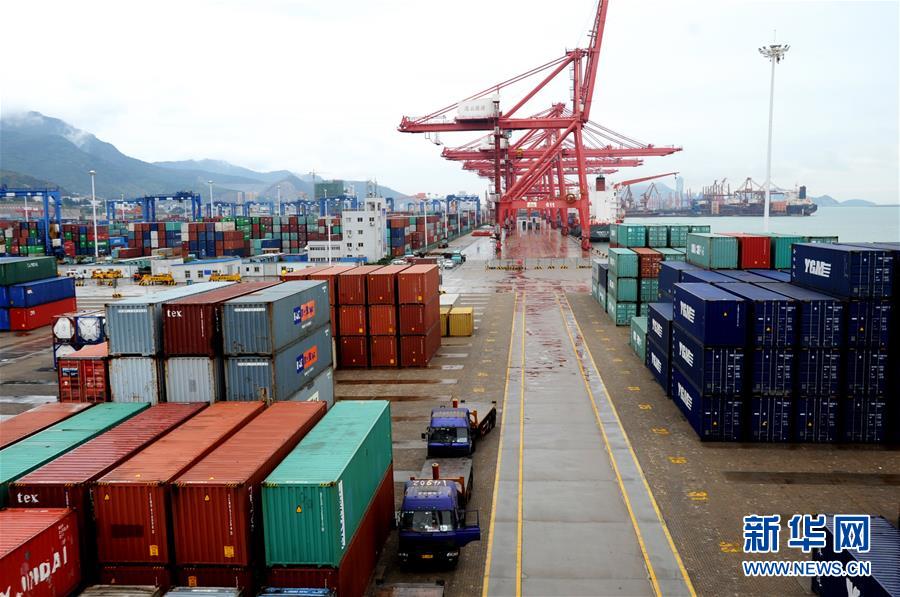


The multilateral trading system plays a key role in building global prosperity and in maintaining world peace, but the system is being jeopardized by political considerations. The looming issue is Article 15(a)(ii) in China’s protocol of accession. At stake is the authority and credibility of the multilateral trading system. According to Mei Xinyu, a research fellow at China’s Ministry of Commerce, who gave an exclusive interview to People’s Daily Online, all member countries should uphold their commitments, and accept reality. Article 15(a)(ii) in the WTO’s Accession of the People’s Republic of China states:
The importing WTO Member may use a methodology that is not based on a strict comparison with domestic prices or costs in China if the producers under investigation cannot clearly show that market economy conditions prevail in the industry producing the like product with regard to manufacture, production and sale of that product.
However, in Article 15(d) there is a critical sentence which says China should effectively be granted market economy status, even if not in name:
In any event, the provisions of subparagraph (a)(ii) shall expire 15 years after the date of accession.
According to Mei, Article 15(a)(ii) forbids all member countries from treating China unfairly by using prices or costs in a surrogate country to determine value in anti-dumping cases
Speaking on how China perceives the issue, Gary Clyde Hufbauer of the Peterson Institute for International Economics said before a US-China Economic and Security Review Commission hearing on China’s market economy status in last February that, “This sentence requires all countries to accord China market economy status on December 11, 2016, 15 years after China’s accession”; “WTO members can no longer use surrogate costs and prices in [anti-dumping] cases.” In other words, member countries have to uphold their international commitments, even if China’s market economy status is not recognized.
Mei says that the best result is to receive both market status recognition and relevant treatment, but the only benefit of market status in terms of trade is that foreign countries are obliged to use Chinese prices or costs in determining price comparability. The secondary goal, therefore, is to make the US and the EU keep their promises. If international commitments are abandoned, China can initiate WTO litigation, and also carry out moderate trade retaliation as a countermeasure. Mei pointed out that although China’s dollar-denominated imports fell more than that of the EU in 2015, China’s growth potential is still strong. He noted that trade protectionism and trade retaliation is never a one-way street, especially when the two sides are roughly equal in strength. In 2011, the GDP of China and the Eurozone were roughly equal, with each accounting for about 14.3 percent of the world total. In 2015, China’s GDP accounted for 17.1 percent, and the Eurozone, 11.9 percent. Mei said that in such a situation China can make the EU understand the costs. Hufbauer reached a similar conclusion during his testimony to the USCC hearing on China’s market economy status, saying that on balance the US “would lose more than it gains” from withholding market-economy status, because the decision will become “a very large irritant” in bilateral commercial relations and the benefit to domestic industries would be modest.
Although the benefit of granting China market economy status outweighs the cost of denying the status, the US and the EU have reason to break their promises. In 2012 and 2013, the growth rate of US and EU exports outpaced the growth rate of imports. In 2014, however, the situation changed. The growth rate of US and EU imports outpaced exports by 0.4 percentage points, and the gap widened significantly in 2015, especially in the US. The widening imbalance of US and EU trade in goods with China could encourage protectionist policies.
Even though a decision to restrict China by continuing to use surrogate costs or prices would come at a higher cost relative to granting China market economy status, some forces in the US and the EU are trying to ensure that China’s non-market economy status remains in effect. In April 2016, US Congresswoman Rosa DeLauro announced the China Market Economy Status Congressional Review Act to ensure that Congress has the authority to approve whether or not China has become a market economy. Currently the US Department of Commerce is responsible for making that determination. According to DeLauro, “There would be a devastating impact on American industry” if there is a change in China’s status. There is also serious concern in Europe about China’s market economy status, even though daily trade flows between the two sides are well over a billion US dollars. In May 2016, the European Parliament adopted an unbinding resolution asking the European Commission not to grant market economy status to China, arguing that it will make it that more difficult for the EU to impose anti-dumping measures. Such protectionist measures would do more harm than good for world trade.
The issue of market economy status is complex, but the basic foundation of the issue is simple. All WTO member countries promised 15 years ago to end the surrogate country approach against China by 2016, regardless of decisions on China’s market economy status. Upholding this international commitment is important not just for China, but for the multilateral trading system itself. China realizes that it is up to individual WTO members to decide whether China is a market economy and respects their decision, but the country is not going to sit back and allow member countries to ignore the expiration of the special provisions in order to restrict Chinese trade for political considerations. All WTO member countries should observe their international commitments in order to safeguard the authority and credibility of the multilateral trading system, which has made a vital contribution to lasting peace and stability.

 Who Will Fit The Chinese Roles In Game Of Thrones?
Who Will Fit The Chinese Roles In Game Of Thrones? China's Hubei Shennongjia added to World Heritage List
China's Hubei Shennongjia added to World Heritage List Cute Dog At Fruit Stand Becomes Latest Internet Sensation
Cute Dog At Fruit Stand Becomes Latest Internet Sensation Top 10 livable Chinese cities
Top 10 livable Chinese cities The last primitive tribe in China
The last primitive tribe in China China's first intelligent security robot debuts in Chongqing
China's first intelligent security robot debuts in Chongqing A Total of 3,552 Subscribers Vanish In Two Days; YouTube Closes All Doors to Users’ Inquiries
A Total of 3,552 Subscribers Vanish In Two Days; YouTube Closes All Doors to Users’ Inquiries Out of this world! Futuristic UFO-shaped yacht has its own garden and a stunning underwater viewing deck
Out of this world! Futuristic UFO-shaped yacht has its own garden and a stunning underwater viewing deck An old tea house in Chengdu
An old tea house in Chengdu Furious Customer Crushes All the Buns from Vendor Just Because He Was Given the Wrong Flavor
Furious Customer Crushes All the Buns from Vendor Just Because He Was Given the Wrong Flavor